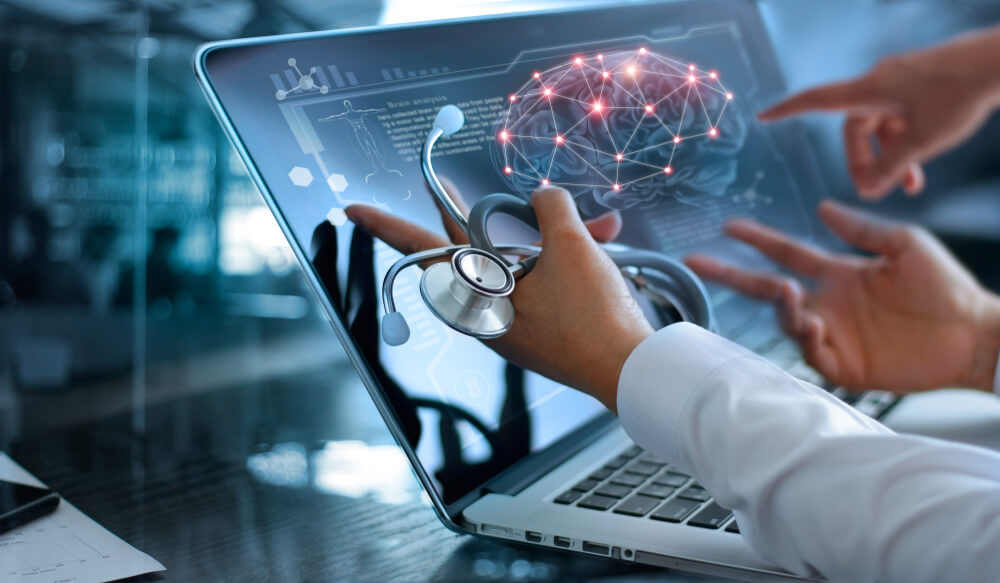There are plenty of digital health technologies that can help transform your medical practice. Here’s why you should embrace them wholeheartedly.
The patient role in healthcare settings has radically transformed from a passive role to an active one. They are increasingly eager to embrace forward-looking technologies to participate in self-care actively. With this, we witness an increasing trend towards virtual visits, wearable health devices, and artificial intelligence. This then signals the fact that tomorrow’s successful medical practices will necessarily embrace digital health technologies today.
Interestingly, the patients don’t want digital health; they essentially expect it. That is, they expect their providers to offer various digital health services to enhance their patient experience. For instance, they are using EHR portals to seek information about their healthcare, interact with their providers, file medication refills, and so forth.
Moreover, patients believe that deploying technology to offer connected health can essentially yield better care. According to Transcend Insights’ recent survey, 97% of the patients identified that a doctor must have complete access to their entire medical history to be able to provide quality healthcare. And 93% of the patients added that they receive better care when doctors can share medical information.
Related Read: Performance Transparency In The Digital Era
There are several digital health technologies available at the disposal of medical professionals that can assist in their daily workflows and improve patient outcomes:
Electronic Health Records (EHRs)
EHRs have emerged as one of the leading digital technologies in healthcare settings. They act as an efficient replacement to antiquated, paper-based systems, reaping benefits for both the patients and the providers. EHRs eliminate unnecessary paperwork by digitizing various processes at your practice. With an effective EHR system in place, your patients and staff only need to provide and enter information once. This information is stored in the EHR database, which can be accessed anytime. Other benefits that accompany implementing an EHR system include the following:
- Accurate, up-to-date, and complete patient records
- Quick and easy to access to patient records facilitates coordinated care
- Secure information sharing electronically
- Effective Diagnosis and treatment plans for better patient outcomes
- Reduced medical errors
- More comfortable, safer, and more reliable prescribing
- Streamlined workflows leading to improved productivity and efficiency and of medical practice
- Reduced costs through decreased paperwork and reduced duplication of records
- Improved communication between patients and providers
- Increased medical adherence through online medication refills and electronic prescriptions
Telemedicine
Telemedicine is another breakthrough digital health technology that facilitates overcoming barriers to health services caused by geographical locations and fragmentation of care. Many people in rural regions lack reliable transportation and hence are unable to seek medical care for their health conditions. Telemedicine, therefore, offers easy access to care by effectively utilizing digital technologies. Other benefits of telemedicine include the following:
- Enhanced patient engagement through improved communication with the providers
- Improved quality of care through increased patient engagement, fewer hospitalizations, and reduced re-admissions
- Reduced healthcare costs such as transportation costs for patients and no-show costs for providers
- Streamlined practice workflows through an integrated system
- Increased provider satisfaction and better work-life balance
Medical Billing Solutions
Medical practices are also increasingly deploying integrated medical billing solutions to streamline the essential function – billing. Traditionally billing has been the most frustrating administrative reality of the clinical experience, which is incredibly time-consuming and tedious. With a medical billing system in place, practices can streamline and significantly improve their billing processes through automated workflows. Other benefits include the following:
- Reduced paperwork leading to improved efficiency
- Reduced chances of error due to automated processes
- Higher reimbursement with streamlined billing processes and fewer errors
- Reduced claim denials due to lesser errors
- Better documentation
- Better reporting with more accurate and reliable billing data
CureMD Can Help
CureMD is a leading provider of innovative health information systems that seek to transform the administrative and clinical operations of healthcare organizations. It’s award-winning EHR, medical billing, and telemedicine solutions ensure compliance with industry standards and best practices while saving time and effort to maximize value and returns. The systems are geared towards progressively advancing the digital medical world.
